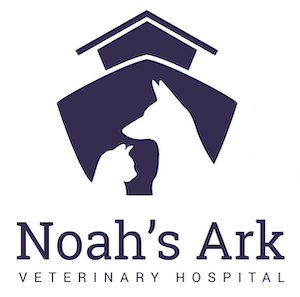Parasites, like fleas, ticks, and worms, aren’t simply annoying — they can cause serious illness and can even be fatal for your pet. At Noah’s Ark Veterinary Hospital, our experienced team can quickly recognize the signs of a parasite infestation or parasite-related sickness, offer treatment options, and get your pet back to good health.
In our fully-stocked pharmacy, we carry medications and topical treatments to help control fleas, ticks, heartworms, and gastrointestinal parasites. Keeping your pet parasite-free isn’t just vital to their health, but it also helps to protect children and other family members in your home.
Common parasites include but are not limited to:
- Fleas
- Ticks
- Heartworms
- Gastrointestinal parasites (tapeworms, roundworms, hookworms, pinworms)*
- Ear mites
- Mange (fur) mites,
- and more
*While most of these parasites primarily affect dogs and cats, intestinal parasites are also very common in reptiles.
How do pets contract parasites?
In most cases, parasites are transferred to your pet through contact with other pets and wildlife. For example, fleas can be transferred through contact between animals, whether your pet plays with another pet who has fleas or the fleas are simply brought into your yard by animals such as raccoons, opossums, and small rodents. Fleas can also transmit tapeworms to your pet, as they are known to carry tapeworm larvae. Gastrointestinal parasites can be transmitted through contact with fecal matter, soil, water, or plants that have been contaminated with animal feces.
How do I prevent parasites?
There are many things you can do to help protect your pet from parasites year-round, including:
- Routine check-ups and parasite screenings at your local veterinary office
- Monthly parasite prevention medication
- Regular bathing and grooming
- Picking up after your pet and keeping your yard free of droppings
- Encouraging children to wash their hands after playing outside and before eating, to avoid spreading any germs
- And if possible, preventing your pet from killing and eating rodents and other small animals
Ultimately, the two most important things you can do to protect your pet are regular checkups and preventative medication, both of which we provide at Noah’s Ark.
What do I do if my pet has parasites?
Treatment begins with your vet. Because parasites can be so dangerous—heartworms and gastrointestinal worms in particular can be fatal—it’s always best to take your pet to the vet ASAP if you notice any signs of an infestation. After performing a screening, your veterinarian can determine the severity and recommend the best treatment plan to ensure your pet’s (and your family’s) health and safety. For most parasites, the treatment will usually be a combination of prescription medications to get rid of the infestation and soothe any painful symptoms.
If you think your pet might have contracted parasites—or if you would like to take the first steps to keeping your pet healthy and happy all year round—contact our office today to set up an appointment.

